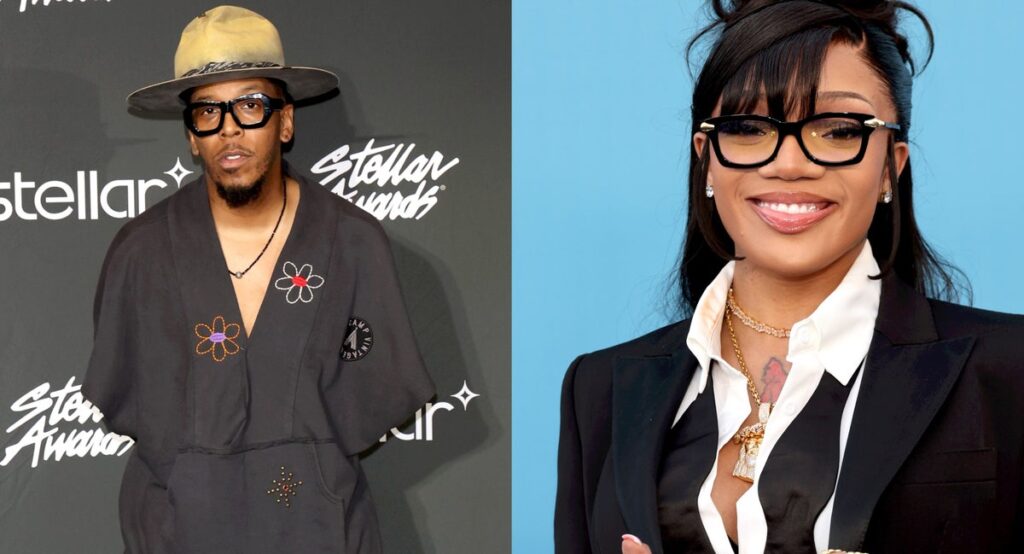Image
Image Alt
Deitrick Haddon, GloRilla
Image Size
landscape-medium
Key Takeaways
- Deitrick Haddon publicly questioned GloRilla’s BET gospel award win, saying it should have gone to a traditional gospel artist.
- The track “Rain Down on Me,” featuring Kirk Franklin, has sparked debate over what qualifies as gospel in 2025.
- The controversy highlights deeper generational divides and evolving definitions within gospel music today.
GloRilla’s win for the Dr. Bobby Jones Best Gospel/Inspirational Award at the 2025 BET Awards sparked major conversation, and now artist and pastor Deitrick Haddon is weighing in. Naturally, his reaction to her latest triumph is adding fuel to what has already been a heated conversation in recent years.
In a chat with TMZ, Haddon shared his unfiltered thoughts. While he gave GloRilla her flowers as an artist and said he had nothing against her personally, the creative made it clear that he believes “Rain Down on Me” didn’t belong in the category. “That goes to the gospel artist,” he said, explaining what he feels should be the intent behind the award. “It’s the one award that night that we have; you’ve got to give it to people that’s in the trenches of gospel music.”
The track, which does feature legend Kirk Franklin, immediately stirred conversation when it dropped. Many viewed it as a bold step forward, bridging generations and genres.
Haddon shared that he’s a fan of her music and isn’t attempting to discredit her; he wants to make a point to the ones who are in control: “GloRilla didn’t choose herself. She didn’t say, ‘Hey, give me the award.’ Somebody made that decision, so I’m not tripping on GloRilla.”

His remarks tap into a bigger debate that’s been building for a while: how gospel music is evolving in the mainstream landscape. As more secular artists experiment with spiritual themes or collaborate with gospel veterans, questions around genre, message, and authenticity keep coming up.
And while Kirk Franklin’s involvement might have given the track weight, Haddon and others in the community are pushing for clearer standards. “That was her song, on her record, on her body of work,” he reminded the TMZ reporter. “It wasn’t their song… They were the feature; she was the main artist… I would never hate on a Black woman… But that particular award belongs to a gospel artist — just like she deserved to be top of the female Hip Hop artists.”
GloRilla hasn’t responded publicly, but the conversation around her win is heating up online. Do you agree with Deitrick Haddon, or do you think Glo won fair and square?



